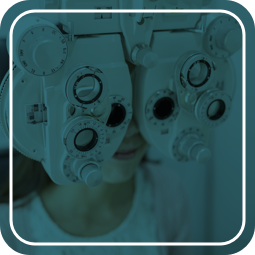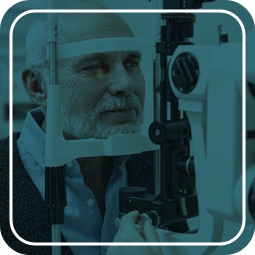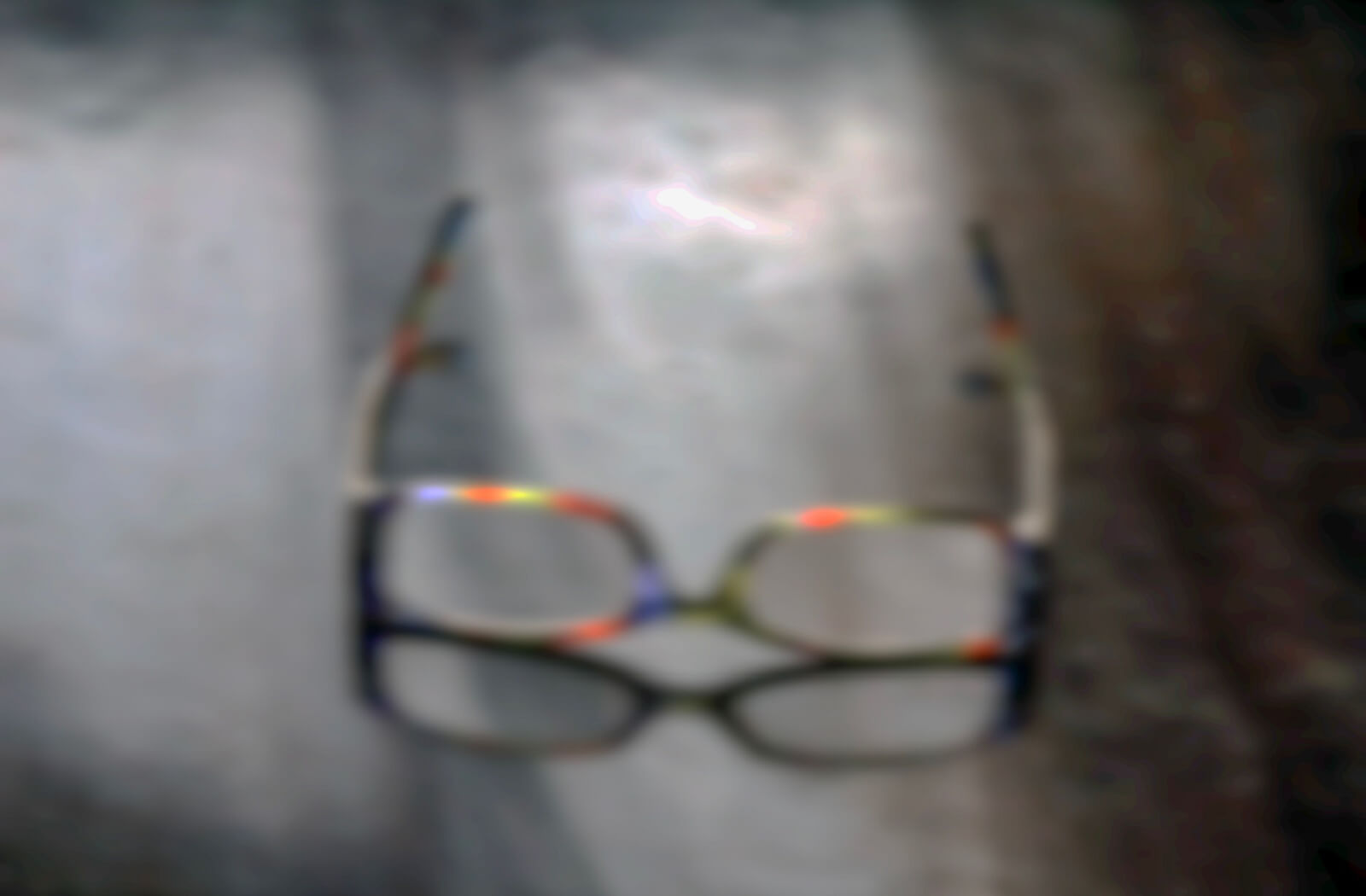Some eye diseases don’t show any early warning signs or noticeable symptoms. Through regular eye exams, your eye doctor can identify these eye diseases before they cause damage to your eyes and vision.
Age-related macular degeneration (AMD) is one of those conditions with not-so-obvious early symptoms. The warning signs for AMD can include blurry vision, difficulty seeing in low light, and faded colours, all caused by loss of central vision.
What Is Macular Degeneration?
Macular degeneration affects the central part of the retina (the light-sensitive tissue at the back of the eye), known as the macula, which is responsible for detailed vision in activities such as reading, driving, and recognizing faces.
The function of your macula is to help send images from your optic nerve to your brain. When the cells in the macula break down, it’s harder for your brain to understand or read images that your eyes see. While it affects central vision, those with macular degeneration may still retain their peripheral vision.
Macular degeneration can progress gradually or rapidly and cause irreversible damage to your sight. It’s the leading cause of vision loss among older adults over 50. Age is a risk factor, and other risk factors can include:
- Family history of macular degeneration
- Hypertension (high blood pressure)
- High cholesterol
- Obesity
- A diet high in saturated fats
- Smoking
Types of Age-Related Macular Degeneration
Dry and wet AMD are two types of macular degeneration. Dry is the most common form, accounting for 90% of cases. It’s milder, generally develops slowly over time, and can change into wet AMD. Wet AMD is less common and is often characterized by a rapid progression of symptoms.
Warning Signs of Macular Degeneration
Easily noticeable signs and symptoms of macular degeneration usually only develop when the disease progresses into later stages. Eye exams are the only way to detect early warning signs of macular degeneration. Early signs are generally indicative of dry macular degeneration and relate to the disease’s effects on central vision.
Blurred Vision
Blurry vision is one of the earliest and most common symptoms of macular degeneration. People with macular degeneration may or may not notice that their vision becomes increasingly hazy or fuzzy with near or far vision. Blurred vision may also affect close-up activities, such as reading, driving, or recognizing faces, making it difficult to perform daily activities.
Blank Areas in Your Vision
A dark or empty spot in the center of your vision is also a common early warning sign of macular degeneration. It can occur in one or both eyes and may start small and gradually enlarge or increase over time.
Difficulty Seeing in Low Light
People with macular degeneration may have increased difficulty seeing in low light and adapting to low light levels, such as when entering dimly lit areas like a dark restaurant or theatre. They also may need brighter light when doing a close-up activity like reading.
Faded Colours
For those with macular degeneration, colours may not appear as bright as before and may look faded, dull, dark, or less vivid.

When to See Your Eye Doctor
As macular degeneration progresses, it can also evolve into wet macular degeneration. Signs of continued progression of both forms of AMD can include the following vision changes:
- Visual distortions, such as straight lines looking wavy or crooked
- Reduced central vision in one or both eyes
If you experience any noticeable changes to your vision, it’s important to speak with your eye doctor about the cause of your vision changes and how to prevent further progression.
Diagnosing Macular Degeneration
Your eye doctor can diagnose macular degeneration by looking at your medical history, family history, and risk factors and by performing various tests during an eye exam, including the following:
- Amsler grid test: This test checks for changes in central vision. If you have macular degeneration, the lines in a square-shaped graph with a dot in the center may look distorted, wavy, or curved.
- Examining the back of your eye: By using dilating eye drops to widen your pupils or retinal imaging technology, your eye doctor can examine the inside of your eye for signs of AMD.
- Optical coherence tomography (OCT): This test scans your retina and macula.
- Fluorescein angiography: This test uses a dye to highlight the blood vessels in the back of the eye so your eye doctor can look for abnormalities.
Treatment for Macular Degeneration
Therapy, lifestyle changes, and continued monitoring of macular degeneration are all the foundations of treatment, which can depend on the type and stage of AMD affecting your vision. Some recommended strategies for managing AMD include:
- Quitting smoking
- Eating a healthy diet
- Exercising regularly
- Maintaining healthy blood pressure and cholesterol
- Reducing ultraviolet (UV) light exposure
For late-stage wet macular degeneration, there are also specific procedures that may be recommended based on your eye health and the progression of the disease.
Patient-Centred Eye Care in Ottawa
Macular degeneration is a common condition that affects many older adults. Early detection and prompt treatment can help slow down the progression of the disease and preserve your vision.
Visit Downtown Eye Care & The Contact Lens Department for regular comprehensive eye exams. If you experience any of the warning signs of macular degeneration, book an appointment to speak with us about your vision.















